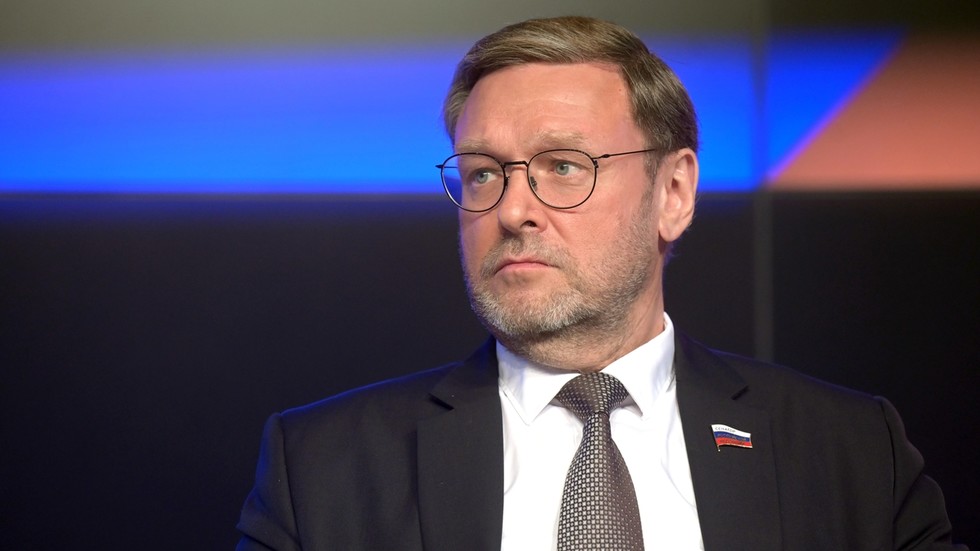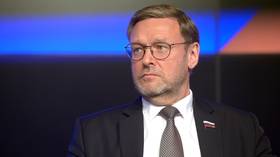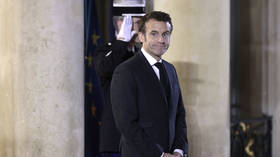
It can either address the security concerns of other nations, or stick to a “suicidal” egocentric attitude, a top Russian senator has said

Vice-Speaker of the Federation Council of the Russian Federation Konstantin Kosachev. © Sputnik/Ilya Pitalev
Western countries are standing at a crossroads and must decide whether they want continue pursuing selfish policies that address only their own security, or recognize that this is a dead-end track, the vice speaker of upper chamber of the Russian parliament, Konstantin Kosachev, said on Tuesday.
Writing on Telegram, Kosachev, who also chairs the Foreign Affairs Committee of the Federation Council, said that “sooner or later, the West will have to make an existential choice” between catering for only its own interests, “or admitting that this suicidal strategy has exhausted itself.”
The senator noted that a return to the principle of “indivisibility of security architecture” was the only path forward. Kosachev explained that this means a “deliberate refusal to ensure one’s own security at the expense” of other countries, adding that it serves “as a cornerstone” for all complex diplomatic arrangements.
The vice speaker also claimed that there is a rift between Western countries on this issue. He pointed to the statements made by French President Emmanuel Macron and German Chancellor Olaf Scholz on the need for a new security framework after the Ukraine conflict ends.

Read more
According to Kosachev, these remarks “suggest that there are still remnants of common sense and a sense of self-preservation in France and Germany, which are behaving more responsibly.” That sentiment, however, is not shared by a number of other EU countries, including the Baltic nations and Poland, he stated.
Earlier this month, Macron expressed the view that NATO should prepare security guarantees for Russia after the Ukraine conflict is settled. Around the same time, Scholz noted that peace in Europe depends on the revival of post-Cold War security arrangements with Russia.
Reuters reported on Monday, citing sources, that the three Baltic states, along with Poland and Slovakia, had officially lodged their disapproval of the French leader’s remarks on making guarantees to Moscow. The same day, Polish Deputy Foreign Minister Pawel Jablonski said that Russia should not expect such promises from other nations, arguing that Moscow has to ensure the safety of the EU, and not the other way around.



